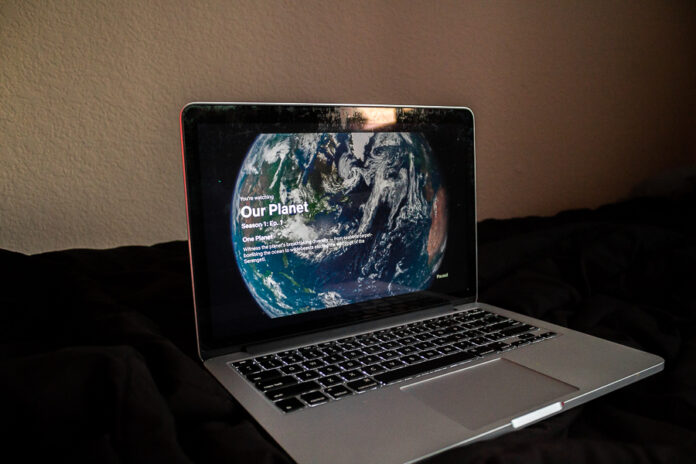Netflix and David Attenborough team up to strike the perfect balance between entertainment and environmental alarmism
Free from the conservative shackles of BBC, David Attenborough, notable narrator of “Planet Earth,” takes nature documentaries where they haven’t been before with “Our Planet,” a new series on Netflix — and it works.
BBC is one of the biggest and oldest broadcasting corporations in the world. It has gained the nickname “Auntie,” short for “Auntie knows best,” due to its unwillingness to listen to criticism, advice or requests from anyone. This stubbornness certainly transferred over to its Natural History Unit, the department that focuses on wildlife series.
The NHU, which brought us Planet Earth I, II and many other nature documentaries, has been criticized for its ambiguous stance on climate change. The debate reached its boiling point when BBC controversially brought in a climate change denier for a climate change interview under the guise of a “balanced” discussion.
It should therefore come as no surprise that BBC’s latest groundbreaking nature program, Planet Earth II, had its faults as well.
Despite its beautifully captivating quality, as its images of bobcats leaping through freezing-cold rivers are, Planet Earth II’s actionable activism for conservation falls short. BBC’s response to these criticisms has been to captivate viewers with its footage in hopes they take action. But its goal is too ambitious and shifts the whole burden of taking action onto the viewer, when the responsibility should be shared with the content creators as well.
So when David Attenborough got the call to make a nature documentary series from the independent entertainment giant Netflix, he jumped at the opportunity and held on tight, like a hungry lion clenching his precious prey.
But Attenborough had to be careful. “Every time the bell rings, every time that image [of a threatened animal] comes up, do you say, ‘Remember, they are in danger’? How often do you say this without becoming a real turn-off?” Attenborough said in November 2018.
How do you keep an audience entertained while simultaneously educating them about the perils of climate change?
In the second episode of “Our Planet,” Attenborough takes us to the cold coastal waters of northeastern Russia. Walruses, after having their crustacean and sea cucumber feast, try to find ice sheets to rest on — but come up short.
In the absence of their usual resting habitat, the walruses scramble to their closest land, a rocky, narrow island. The largest gathering of walruses on the planet, over 100,000 of them, is forced to compromise and adapt to their current circumstances. Packed like sardines, the clumsy, two-ton mammals scramble over each other in search of space, killing smaller walruses and resulting in vicious encounters and deadly stampedes.
In the quest for peace and rest, some walruses make it through the crowded mob, only to find a steep rocky incline leading to a heavenly space to rest. The determined walruses use forelimbs designed for swimming to crawl up the steep slope and reach the promised land. But as we all learn at some point in this cruel world, there is no heaven on earth.
After waking up from their lengthy slumbers, the walruses start regrouping and making their way to water for another feast. And the lucky walruses up on the rocky cliff have no intentions of being left behind. But with their lack of agility and poor descending skills, the heavy and ungraceful walruses are stuck on an 80-meter rocky cliff. Hunger leads us animals to great lengths, some never meant to be reached.
With their poor eyesight, the naïve walruses’ desperation proves too great to ignore any longer, and the desire to regroup and aching hunger leads them to take a leap of faith. The walruses fall 80 feet to a rocky end. And as the camera zooms out, we see a pile of corpses, hundreds of walruses, pushed to limits beyond their natural capabilities in order to adapt to their changing environment. The foreshadowing of overpopulation issues and resemblance to climate refugees are hard not to see.
Throughout the series, Attenborough doesn’t shy away from telling us that we are responsible for these issues. But the alarmism is compensated with hope and optimism, showing how the amazing footage you’re watching has been possible because of conservation efforts. The end of every episode always segues to ways viewers can help, and directs them to the series’ website for actionable steps to conserve our planet.
And that’s “Our Planet,” striking the perfect balance between entertainment and environmental alarmism.
Written by: Daniel Oropeza — daoropeza@ucdavis.edu
Disclaimer: The views and opinions expressed by individual columnists belong to the columnists alone and do not necessarily indicate the views and opinions held by The California Aggie.




